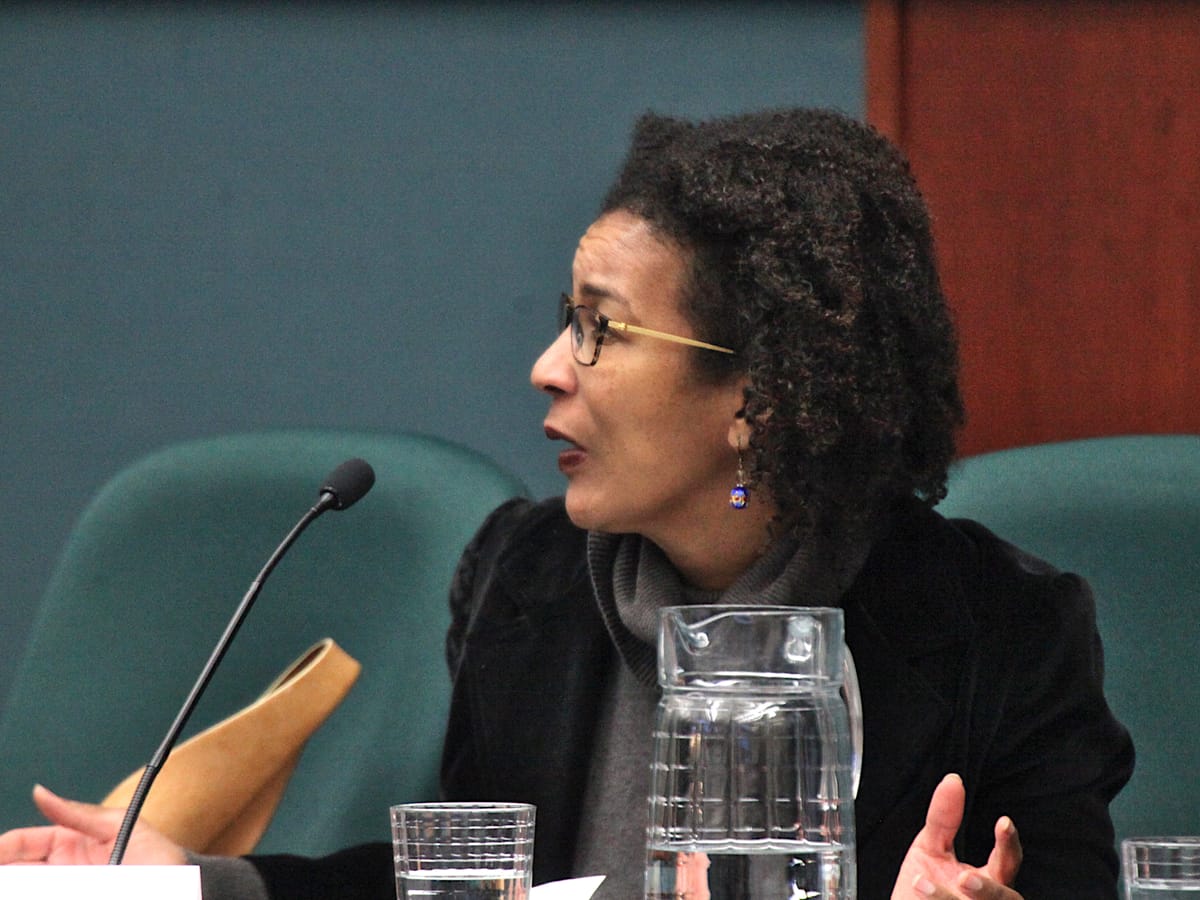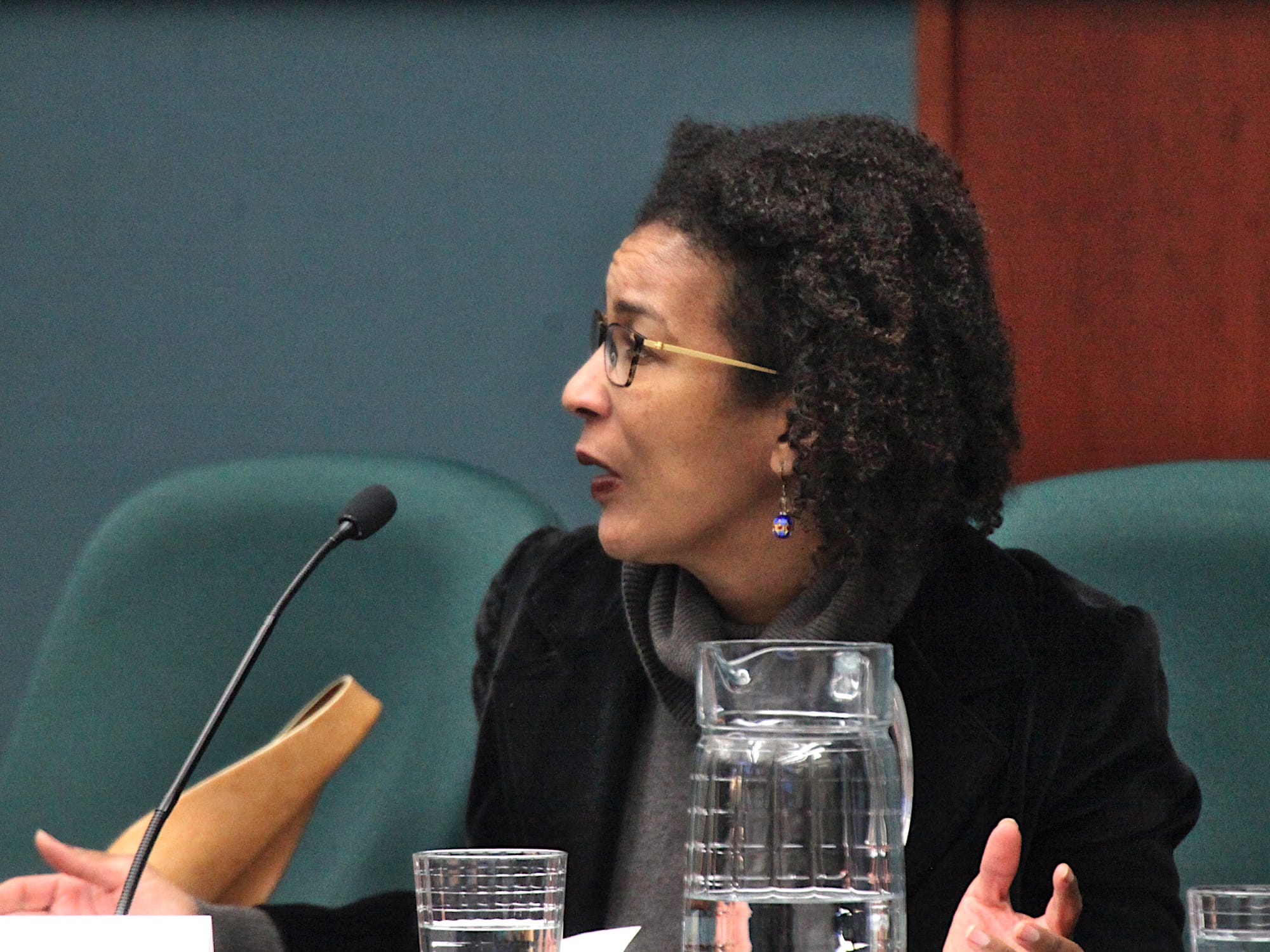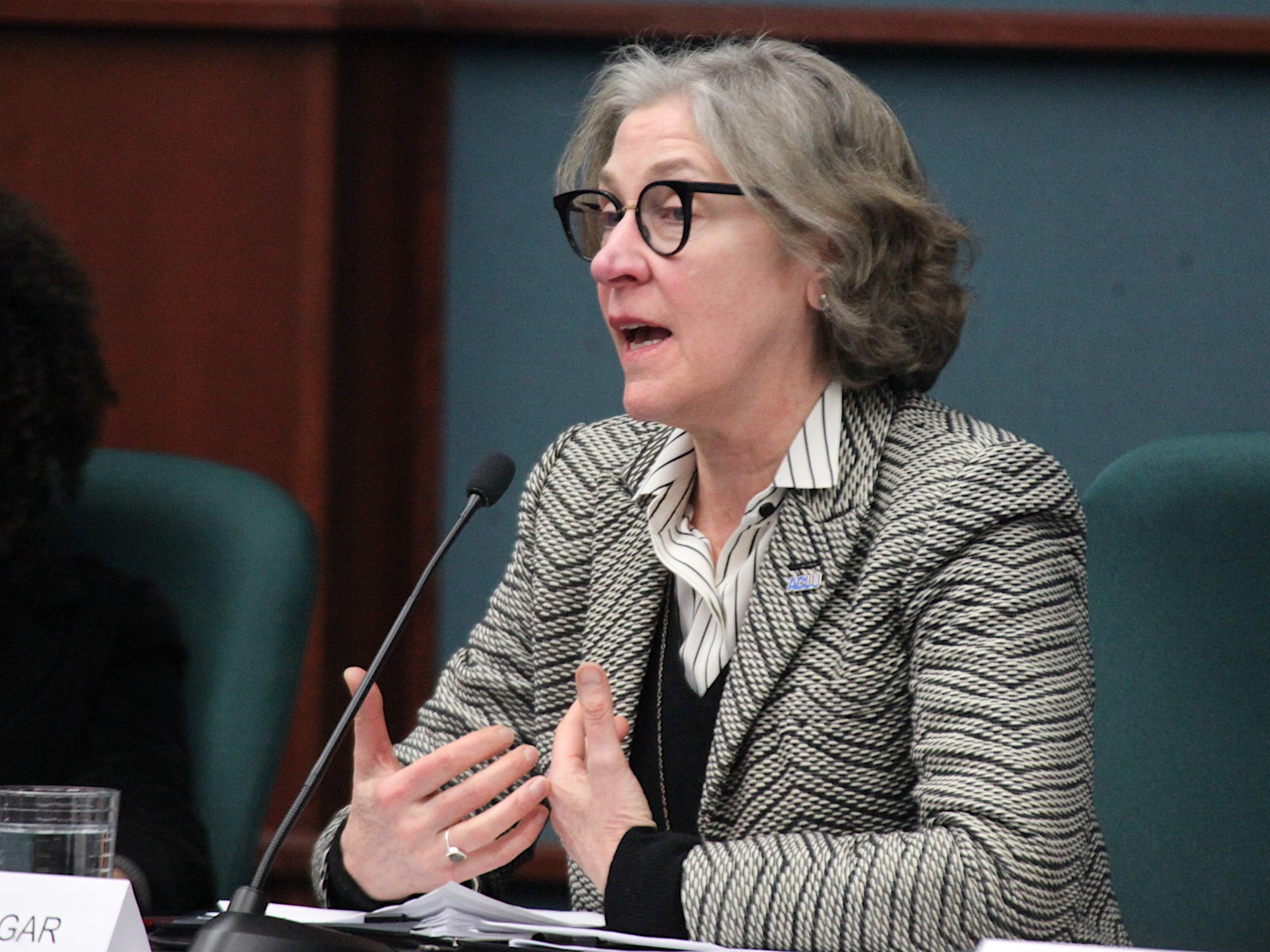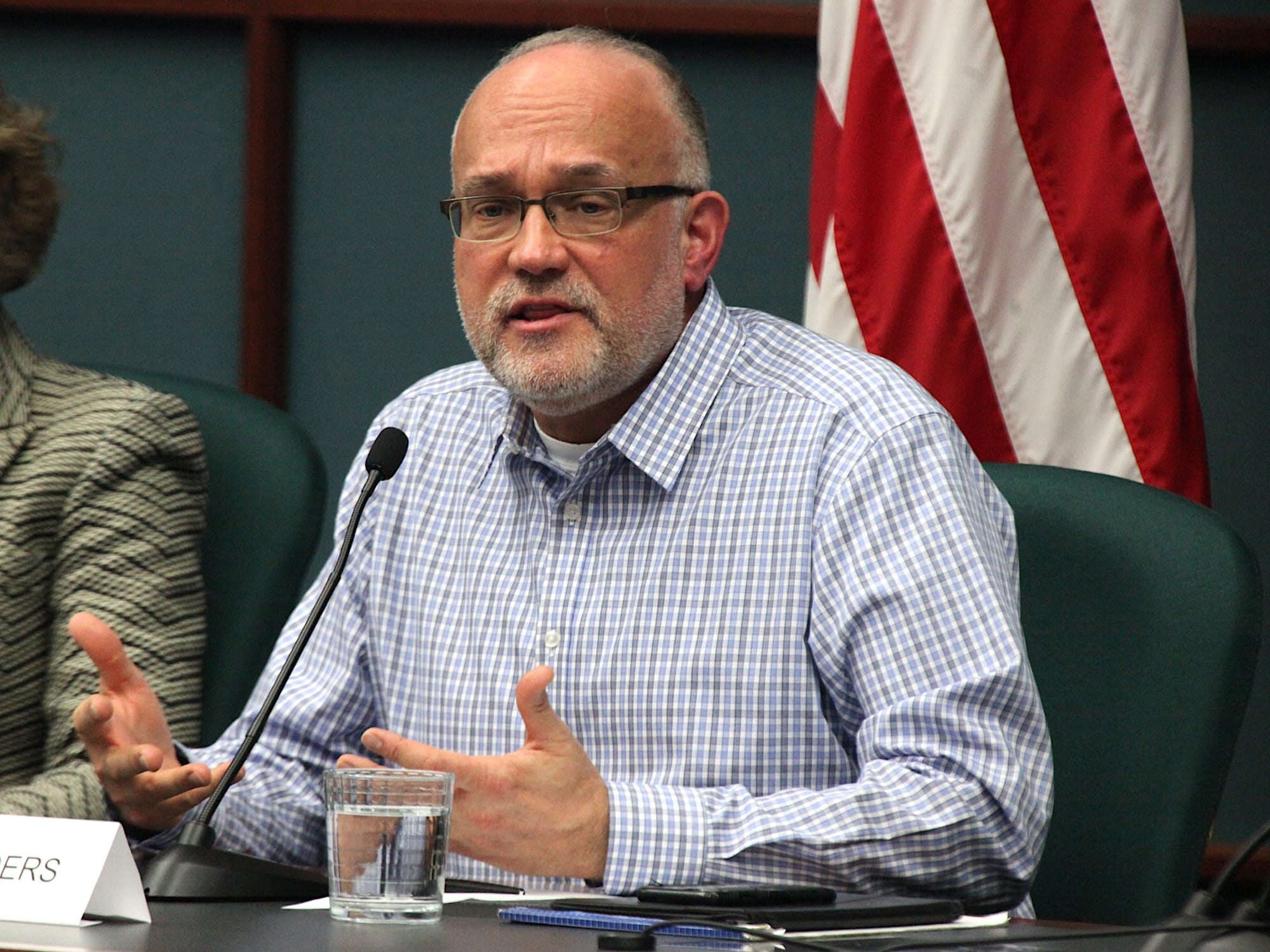Decision on Bloomington farmers market future to be made in January: “The First Amendment has not changed since July.”





A decision about if and how Bloomington’s farmers market will operate next year won’t come until Jan. 9. That announcement was made by Mary Catherine Carmichael, director of public engagement for the city of Bloomington, to a crowd that packed city council chambers on Saturday afternoon.
What makes the future uncertain has been a season of protests against a vendor with alignment to white-supremacist groups. The market was suspended for two weeks in late July amid concerns about possible violence.
The most recent protest, on Nov. 9, was planned to result in arrests—demonstrators carried signs in an area where the market’s rules say signs can’t be held. No charging decision has yet been made by Monroe County’s prosecutor.
Saturday’s event was a panel discussion hosted by the city.
In her introductory remarks, panelist Jeannine Bell, who’s a law professor at Indiana University, talked about her own perspective as a market patron. “I’ve been a person who’s bought vegetables at the market since 1999. I’ve watched the change that’s come about this summer and it’s not something that makes me feel safe or comfortable at the market,” Bell said.
Many of the questions put to the panel rehashed familiar material from a similar event convened in July. Indiana University law professor Steve Sanders responded to the first question about the possibility that the city could oust a vendor based on their beliefs. “I’m not meaning to be flip, but the First Amendment has not changed since July,” he said.
A couple of the questions put to panelists did help clarify how the market is likely to be run next year.
It appears certain that if the city runs the market itself, it will not exclude Sarah Dye of Schooner Creek Farm, who’s been identified by activists as having white-supremacist ties. Dye attended Saturday’s panel discussion.
Short of an exhortation to commit a specific and imminent lawless act, “hate speech” can’t be regulated, according to Sanders. Activists have accused Schooner Creek of violating market rules, by not recording accurate names of stall assistants and by not providing the kind of welcoming atmosphere that’s called out in the agreement that vendors make with the city.
One scenario that’s been discussed is for Bloomington to get out of the farmers market business and allow a private non-profit to take over market operations. Even then, it’s still questionable whether that non-profit could exclude Schooner Creek—especially if the city were to rent space to that private non-profit.
While a private entity is not bound by the First Amendment, Bell said, if the government is renting out the space, it makes the situation complicated, because the government is still involved.
ACLU of Indiana executive director, Jane Heneger, said the ACLU looks closely at attempts by government to circumvent the Constitution by privatizing operations that they have a duty to perform. She indicated that it’s not clear cut for a farmers market, because lots of cities don’t operate farmers markets. It’s not clear that it’s part of Bloomington’s public duty to provide a farmers market, she said.
Some questions for panelists were submitted in writing on cards distributed to attendees. One of those left Bell baffled. The question’s prologue recited the basic demographic statistics of Bloomington residents and concluded that this was about the same as what’s represented at the farmers marked. Why was any additional inclusiveness needed?
Bell said, “The person is asking why the city is trying to make the market more inclusive? I don’t quite understand this question.”
Taking a shot at responding to the demographic question, Heneger ventured that there is more to inclusivity than numerical reflection. The ACLU focuses on the idea of “belonging”—which is different from including someone in something that already exists. You don’t invite someone to join something, but rather to create something together, so that it belongs to everyone who created it, Heneger said.
Charlotte, Virginia’s chief of police, Rashall Brackney who joined the panel through a video link, spoke against the idea of meeting some metric of a demographic profile. The question is whether someone feels like they belong in a space, Brackney said.
When Carmichael concluded the panel discussion, she gave the Jan. 9 date for a decision on the market’s future. She said the city had a “strong sense” that many vendors will return.
Based on sentiments expressed by vendors who attended the Nov. 18 meeting of he farmers market advisory council, they’re hoping next year’s advertising budget will be increased. The 2018 farmers market budget shows $1,275 for advertising.
Vendors are also hoping that they will be able to sign a contract for just part of the year, so they can gauge how things are going, and to keep the city incentivized to promote the market through the year.
Protestors have called on market patrons to boycott Schooner Creek Farm. Some long-time patrons have decided to skip the city’s whole market, or to make their trips there efficient and transactional, without lingering.
Farmers market attendance this year, through Nov. 16, was 114,676. That’s about 43 percent of last year’s total of 264,747. It’s about 51 percent of the average attendance over the last decade.
Former market patrons are finding places other than the city’s farmers market to buy local vegetables. Farmers market vendor Susan Welsand, aka the Chile Woman, told The Beacon that for the month of November she’d been been selling her peppers at a location on the east side of town that Bloomingfoods has made available.
Welsand said about a dozen vendors were using the space in November. On two of the Saturdays she had strong sales, Welsand said, and on the one day when sales were weaker, the weather was bad.
The location has been used by some vendors since early August, when Bloomington suspended the farmers market for two weeks.





Comments ()